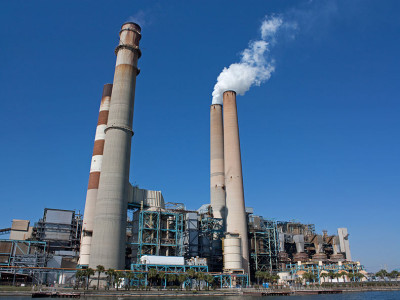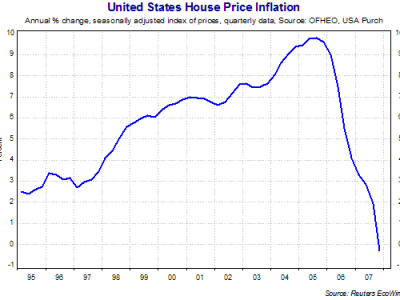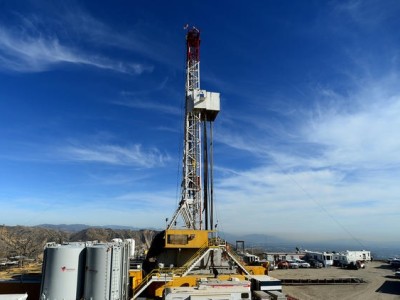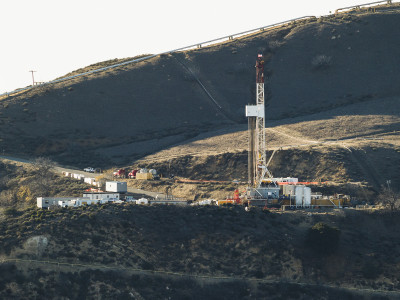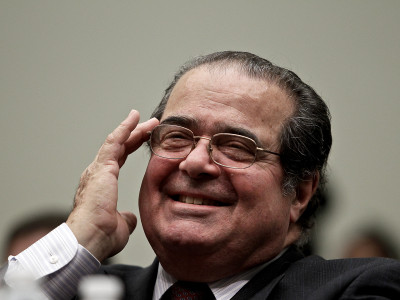Reflections on the Coastal Commission’s Implosion
The Implications of the Decision to Fire Charles Lester - and the Decision Not to Explain It
As Rick Frank insightfully discussed earlier this week, the California Coastal Commission has fired its former executive director, Charles Lester. Readers interested in more background information and analysis should read Rick’s post, as well as the excellent reporting by Tony Barboza and others from the LA Times. (And anyone who wants to hear about it can also listen to this archived podcast from earlier this week, in which I discussed it on KPCC-FM.) I won’t rehash...
CONTINUE READINGThe Supreme Court Stay and the Dog That Didn’t Bark
EPA's Requirements for New Plants Remain Intact
The Supreme Court's stay of the Clean Power Plan was a surprise to almost all observers, maybe even to the lawyers requesting the stay. We can only speculate on what the five majority Justices had in mind, since there was no written opinion. The practical impact of the decision is also unclear. E&E news reports that the stay "doesn't amount to much for many of the nation's electric utilities, as they were already planning to close down their older coal-fired gene...
CONTINUE READINGCalifornia Coastal Commissioners Fire Executive Director Charles Lester
Personnel Dispute is Commission's Biggest Political Controversy in Over a Decade
Following months of public controversy and a marathon 10 1/2 hour hearing Wednesday in Morro Bay, a closely-divided California Coastal Commission voted to fire its Executive Director, Charles Lester. The Commission vote to remove Lester was 7-5. Lester, who as Executive Director has led the Commission staff for the past 4 1/2 years, is the first Executive Director to be terminated in the 44-year history of the Commission. Over the past two months, several unnamed...
CONTINUE READINGThe Decision to Halt the Implementation of the Clean Power Plan is Outrageous
And Inconsistent with the Law
As I wrote earlier today, there is nothing good to be said about the U.S. Supreme Court decision today that halted the implementation of the President's Clean Power Plan. The decision is a huge blow to the President's climate agenda, it's a setback for the Paris Agreement and it is a bad sign that the Court may ultimately strike the plan down. But I should also emphasize that the decision is way outside the bounds of normal Supreme Court practice and is, to put it bl...
CONTINUE READINGInitial Thoughts on the Supreme Court Staying the Clean Power Plan
Short Answer: There's Nothing Good to Say About it
The U.S. Supreme Court, in a 5-4 half-page order, dealt the Obama Administration a big blow today by preventing its Clean Power Plan from going into effect until the case can be heard on its merits. We know from the order that the Court split in the usual way, with the four more liberal members of the Court voting to allow the CPP to go into effect and the 5 conservatives -- importantly including Justice Kennedy -- "staying" the plan (the legal term for preventing t...
CONTINUE READINGThe Puzzling Persistence of Takings Litigation
Litigation rates dropped by only a little even when the real estate market collapsed.
Takings litigation is a bit of a puzzle. You would expect the amount of litigation to go up and down depending on the situation in the real estate market. If there's a lot of new construction, there are more opportunities for conflict between developers and regulators. And if prices are high, so are the economic stakes, which should make litigation more appealing for developers. But the housing bubble seems to have done only a bit to increase litigation, and the ...
CONTINUE READINGPublic Prosecutors Zero In on SoCal Gas, Porter Ranch Disaster
California Attorney General, L.A. District Attorney File New Enforcement Prosecutions
The massive leak from Southern California Gas Company's Aliso Canyon natural gas field in northwestern Los Angeles County was discovered on October 23rd of last year and, more than three months later, shows no sign of abating. Public prosecutors have pretty clearly lost patience with SoCal gas and its ineffective remediation efforts to date. This week, those prosecutors have "gone to the mattresses," filing two major environmental enforcement actions against the ...
CONTINUE READINGLessons from Aliso Canyon, Part I
Regulation of the Oil and Gas Sector
Since October 23, 2015, a leak in a natural gas well has been releasing methane gas near the Porter Ranch neighborhood of Los Angeles. Although methane is invisible and odorless, gas companies add odorants to alert people to leaks, and it is these additives, usually mercaptans, that experts believe are causing the physical effects suffered by residents such as headaches and nosebleeds. Gas companies have been storing natural gas underground in this area for decades,...
CONTINUE READINGAn Inconvenient Logic
Justice Scalia's argument in the FERC case contradicts his attack on Obamacare.
They say consistency is the hobgoblin of small minds. If so, Justice Scalia is in good shape. His argument last week in the FERC argument was totally inconsistent with his argument against the constitutionality of Obamacare. Both cases involve change in the incentives to enter a market in the first place. In the Obamacare case, Scalia said that changing those incentives wasn't a regulation of transactions in the market, but in the FERC case he says it is. To go into...
CONTINUE READINGThe Future of the Diablo Canyon Nuclear Plant
A group of scientists, philanthropists, and self-identified conservationists weighs in.
The role that nuclear power could or should play in helping to mitigate greenhouse gas emissions is worthy of serious debate, but the latest nuclear-related front-page story in the San Francisco Chronicle is a head-scratcher. Above the fold, the headline reads “Nuclear plant’s surprise backers,” followed by the following subheading: “Environmentalists push for Diablo Canyon to stay open.” The accompanying article reports on a letter sent by a new coalition iden...
CONTINUE READING




